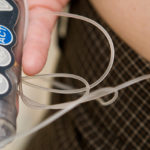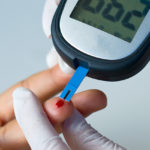February 21, 2019
More than 30 million Americans have diabetes. It’s also estimated that 90-95 percent of those individuals have type 2 diabetes. That’s a staggering statistic. Diabetes often develops over time, and it can be detected with a simple blood test. It’s essential for everyone to recognize the early signs of diabetes because it is a life-threatening chronic disease. However, it can be managed, especially if it is detected in the early stages.
These are the 8 early signs of type 2 diabetes. If you are experiencing one or more of these symptoms, visit a diabetes specialist to confirm whether you need treatment.
1. Excessive Thirst
Having too much sugar in your bloodstream forces your kidneys to work harder at filtering the extra sugar. Chronically high blood sugar levels can overload your kidneys and cause you to excrete the excess sugar through urine. This can make you feel thirsty and dehydrated throughout the day. If you’re excessively thirsty despite drinking lots of water, try reducing your sugar intake or talk to a diabetes doctor.
2. Frequent Urination
Excessive thirst and frequent urination often go hand-in-hand when it comes to the signs of diabetes. The excess sugar in your bloodstream that can’t be filtered by your kidneys is flushed out with urine. Urinating frequently all day and through the night when you’re trying to sleep could indicate problems with insulin resistance.
3. Ongoing Fatigue
Diabetes contributes to fatigue in two ways. First, dehydration can make you feel tired and sluggish. Second, diabetes interferes with the way your body uses glucose for energy. Ongoing fatigue that isn’t resolved with a good night of sleep is one of the most significant warning signs of diabetes.
4. Delayed Healing
Cuts, scrapes, and other wounds will heal more slowly if you’re suffering from diabetes. High blood sugar levels can lower your immunity to slow the body’s healing process. Many people who have diabetes also suffer from high blood pressure, which causes the blood vessels to narrow due to slow circulation; therefore wounds take longer to heal.
5. Vision Problems
Diabetes puts you at risk for many vision problems due to the way chronically high blood sugar levels can damage blood vessels, including those in the eyes. Blurred vision, cataracts, and glaucoma are just a few of the vision problems linked to diabetes. If you’ve started experiencing vision problems, meet with a diabetes specialist right away to prevent and reduce your risk for vision loss and blindness. Fortunately, treating and reversing diabetes early can help you stabilize your blood sugar and improve your vision.
6. Mood Swings
Insulin is a hormone that is similar to estrogen, testosterone, and hunger hormones – leptin and ghrelin. When your body stops producing or using insulin as it should, your hormone levels can fluctuate to cause mood swings, irritability, and depression. Eating healthier foods, lowering blood sugar levels, and receiving diabetes care can all help regulate and address your mood swings.
7. Numbness and Tingling in Extremities
Pins-and-needles sensations in your feet, toes, hands, and fingers are common signs of diabetes. People who suffer from diabetes will often experience numbness and tingling in their extremities. This sensation can indicate diabetic neuropathy, which is a form of nerve damage caused by chronically high blood sugar levels. When left untreated, severe cases of diabetic neuropathy can lead to amputation. See a diabetes doctor immediately if you’re experiencing numbness and tingling in your extremities.
8. Food Cravings
Diabetes can trigger food cravings for many reasons. For instance, depression and mood swings caused by hormonal imbalances can have you reaching for comfort foods like sweets. These same hormonal imbalances can also upset the balance of your hunger hormones to cause junk food cravings.
Additionally, insulin resistance can have you craving carbs and sweets that instantly spike your blood sugar. If you’ve been experiencing strong food cravings lately — especially for sweets — make an appointment with a diabetes specialist to undergo blood testing.
At Healthcare Associates of Texas, we understand the difficulty of managing diabetes and the serious health problems that result from this chronic disease. We are devoted to helping you recognize the early signs of diabetes and treating your symptoms. Our dedicated staff will work with you to ensure you receive the highest quality personalized care and treatment. Schedule an appointment today.
References:
https://www.cdc.gov/diabetes/basics/type2.html
DISCLAIMER
The information featured in this site is general in nature. The site provides health information designed to complement your personal health management. It does not provide medical advice or health services and is not meant to replace professional advice or imply coverage of specific clinical services or products. The inclusion of links to other web sites does not imply any endorsement of the material on such websites.
Ready to become your healthiest self?
Get tips delivered to your e-mail inbox every month. Let’s get happier and healthier together!


